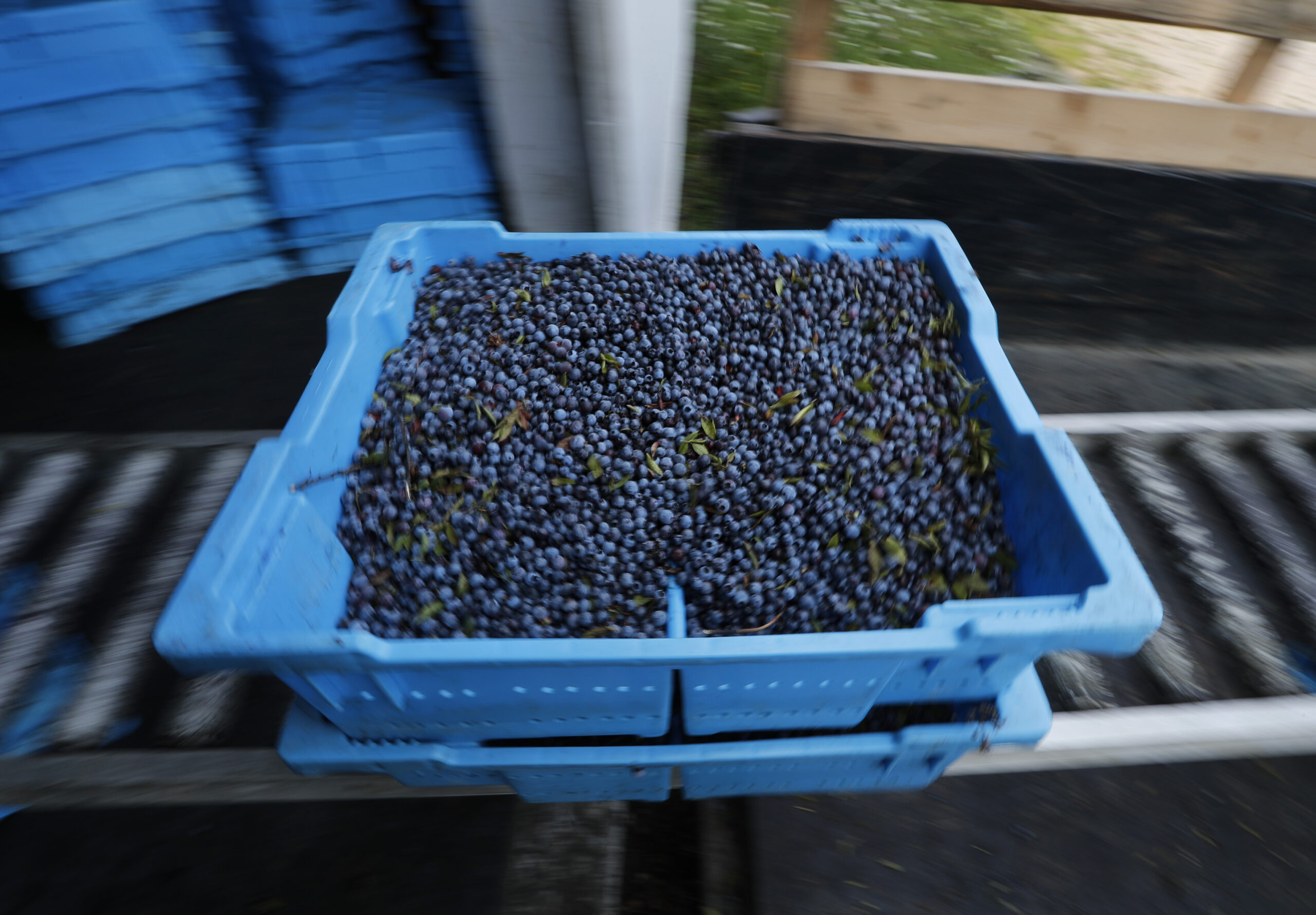Federal Government Promises Investigation, Outreach To Struggling Southeastern Produce Industry

The U.S. Trade Representative is asking the International Trade Commission to investigate the effects of blueberry imports specifically on the domestic industry.
Robert F. Bukaty / Associated Press
Updated Sept. 16 at 12:54 p.m.
The Trump administration laid out its plan this week to address the complaints of the Southeastern produce industry, including the pleas of many farmers in Georgia.
The U.S. Trade Representative is asking the International Trade Commission to investigate the effects of blueberry imports specifically on the domestic industry and said it will conduct “senior-level government-to-government discussions” with Mexico within 90 days about the industry’s concerns.
The issue was already a topic of discussion during USMCA negotiations but was removed from the table “at the last minute,” Zippy Duvall, president of the American Farm Bureau Federation, testified earlier this month.
Georgia members of Congress, who have lobbied the federal government about the problem, commended the move. Republican U.S. Rep. Austin Scott called it “an important step forward in rectifying this issue.”
Democratic U.S. Rep. Sanford Bishop said he was “pleased with the positive results for blueberries from this decision” and that he urged the federal government to “continue their efforts” so other domestic crops can benefit as well. “U.S. specialty crop growers have been challenged enough,” he said.
Republican U.S. Rep. Buddy Carter said, “We appreciate President Trump and his administration’s continued commitment to American farm families, especially Georgia’s blueberry growers.”
“For far too long, Mexico’s unfair trade practices have caused significant harm to Georgia farmers, particularly blueberry growers,” said Republican U.S. Rep. Doug Collins, who also called it “a positive step forward.”
Russ Cogdell, a blueberry farmer in Cogdell, Georgia, who had testified before the government about the problem last month, said he’s “encouraged.”
“The Trump administration has acted. We’re going to have a 201 investigation for blueberries, which for the little community that I live in, I think it’s going to be a big help. It could end up resorting in tariffs,” he said.
According to the release, this is the first time the U.S. Trade Representative has used Section 201 to initiate an investigation in nearly two decades. If the International Trade Commission determines that increased imports of a product are “causing or threatening to cause serious injury to
domestic producers,” the President will be able to “take all action” to help the domestic industry, including tariffs.
A 2019 University of Georgia report projected that Clinch County, where Cogdell lives, would see a more than 40% drop in annual income without a change to the current trade dynamic, which researchers described as “economic damage on the scale of the Great Depression.”
The Departments of Agriculture and Commerce pledged to establish and increase “outreach” to the produce industry to find ways to help the growers.
Goodman said he’s also heartened by the Department of Agriculture’s promise to develop a “market promotion strategy for domestically produced produce” to stimulate people to buy American-grown produce.
“We’re encouraged about [the news], and we’ve just got to watch the follow-through,” he said. “I believe something’s going to give. Whether it’s going to be what we need, time will tell.”








